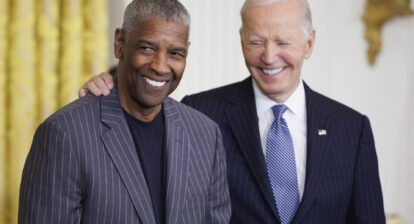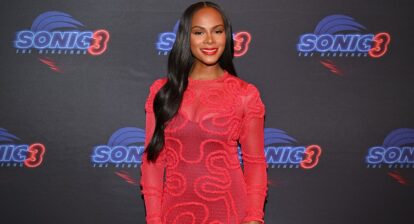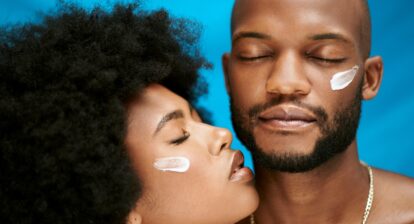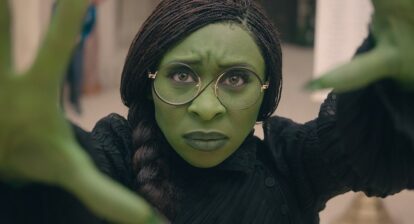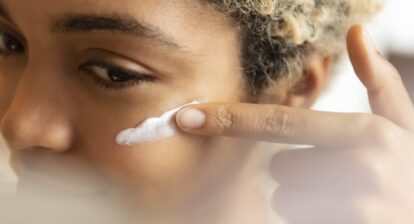
In recent months, a wave of high-profile legal battles has put the legacies of some of the most prominent Black men in entertainment under intense scrutiny. From Diddy facing RICO charges to A$AP Rocky standing trial for felony assault and Jay-Z navigating a now-dropped lawsuit, these cases raise complex questions about the intersection of fame, justice and public perception.
While the legal system upholds the principle of “innocent until proven guilty,” the court of public opinion often moves swiftly, influencing careers, endorsements and long-standing cultural contributions before any verdict is reached. The stakes extend beyond individual reputations, prompting broader discussions about fairness, accountability and the lasting impact of allegations—even in cases where no conviction occurs.
Attorney Faith Jenkins, a former prosecutor and seasoned legal analyst known for her roles on Killer Relationship and Judge Faith, has closely examined how these cases unfold in both the courtroom and the media. She notes that while accountability is essential, the industry must also grapple with how to separate an artist’s legal troubles from their creative legacy. With intense media coverage shaping public narratives and jury selection becoming increasingly difficult, external influences can overshadow the legal process itself.
As these cases continue to play out, the outcomes will not only determine individual fates but also set a precedent for how the entertainment industry and the public handle allegations against Black cultural icons.
In a recent legal development, Diddy has filed a $100 million defamation lawsuit against NBCUniversal, Peacock and production company Ample Entertainment. The lawsuit alleges that the documentary Diddy: The Making of a Bad Boy contains defamatory statements, including unfounded conspiracy theories suggesting Combs is a serial killer and has engaged in sexual misconduct. Combs’ legal team argues that these accusations are baseless and have been aired in the name of sensationalism, causing significant harm to his reputation.
This case underscores the complex interplay between media portrayals and the legal challenges faced by high-profile Black men. As these narratives unfold, they not only influence public perception but also raise critical questions about the responsibilities of media outlets in reporting and the potential long-term impacts on the legacies of those involved.
Attorney Faith Jenkins speaks with EBONY for the latest on the high-profile cases and the cultural impact of said litigation.
EBONY: What are your thoughts on the state of Black artists and how these legal cases and challenges are impacting their work and threatening their legacies?
Attorney Faith Jenkins: From a legal standpoint, these cases really highlight the complex intersection of the justice system, public opinion and media influence, especially when it comes to Black artists. The principle of innocent until proven guilty is fundamental to our justice system. Yet, in high profile cases, we see time and again how public perception often shifts far in advance of any trial.
For artists like Diddy, Jay-Z and A$AP Rocky, legal battles don’t just threaten their freedom; they impact their entire legacy. When you look at civil lawsuits and criminal charges, these things alone can trigger contract terminations, lost endorsements and industry blackballing. Even if a case is dismissed or an artist is found not guilty, the stain can often remain on their names.
At the same time, true justice does require accountability. If crimes have been committed, legal consequences should follow regardless of someone’s status. However, it is critical in high profile cases, in particular with high profile legendary artists, that these cases are tried in court and not in headlines. I think the industry must find a way to balance legal accountability with artistic legacy, ensuring that victims’ voices are heard while also upholding the principle of fair trials. Those accused deserve due process, and the contributions of Black artists shouldn’t be erased overnight based solely on allegations.
Will the various documentaries and media impact the lawsuits and criminal trials? Can the jury stay impartial?
Whenever you have a big press case and a lot of media attention surrounding a case, it makes picking a jury more challenging for the attorneys. The goal is to choose people who are going to make their decision based on the evidence presented in court. The attorneys are going to take a longer time to vet potential jurors, because some people will have formed opinions before coming into the court room based on things they’ve heard, not on evidence presented. That’s exactly what you don’t want as an attorney – on both sides.
Why can’t Diddy get bail?
Diddy’s legal team has presented several scenarios to the judge where they argue he’s not going to flee. Despite those proposals for stringent monitoring, the court has maintained that no conditions would ensure community safety. The court has said that they are really concerned about witness tampering given the nature of the charges involved, which include coercion and violence.
The court’s position is it’s best that bail be denied, and that he stays incarcerated during this time period. That could still change. The attorneys can still put forward new motions, but as of now, the court’s decision is based on the allegations of coercion, violence and potential witness tampering.
Diddy is facing RICO charges, but there haven’t been other people of interest named. Can we expect names soon?
Dave Chappelle, in his recent Saturday Night Live monologue, addressed the legal allegations against Diddy, specifically RICO. He said they’ve got Diddy in a RICO case by himself. He humorously commented on that very serious allegation because RICO laws are generally used to prosecute organized crime networks, groups of people or people who are engaged in a pattern of illegal activity and conspiracy over time. So, the fact that he alone is currently the only one named raises some questions.
As a former prosecutor, when I see these charges, it tells me that they are continuing to build what they believe will be a larger case and that they may name more people later. They are probably interviewing some of the people who they believe may have been involved, and they do not believe that Diddy acted alone in the alleged criminal activity.
Diddy and his legal team have filed a suit against former associate Courtney Burgess, his attorney, and Nexstar Media Group after Burgess claimed to have sex tapes of Diddy assaulting victims. Does this lawsuit send a message that Diddy will fight for his innocence beyond the criminal charges? Does him not suing other accusers mean there is validity to those cases?
Diddy and his team did file a $50 million defamation lawsuit against Courtney Burgess, his attorney and Nexstar Media Group contending that these allegations are completely fabricated and are being used for financial gain, and that, of course, it’s caused significant harm to his reputation and legal standing. Those are the key arguments. Because of the number of lawsuits that have been filed and the number of allegations that are being brought against Diddy, I think his attorneys feel like they have to take a strong stance.
At some point, they have to make a statement that they are going to continue to fight these allegations and that Diddy’s not going to go down without a fight. When you file a $50 million lawsuit, that number alone is a wake-up call. People start to think, ‘How are we going to defend a $50 million lawsuit? What if we lose?’ It sends a message, ‘If you’re going to come against me and say that you have evidence, you better be able to back it up because if not, there’s a price that you’re going to have to pay.’
Diddy has filed a separate, $100M lawsuit against NBCUniversal and others for a recent documentary. What are the legal ramifications of this if he wins? Can alleged witnesses be sued as well?
If Diddy prevails in his lawsuit, the legal consequences could be significant:
- Financial Damages: A ruling in Diddy’s favor could mean NBCUniversal and other defendants are ordered to pay substantial damages. This could include compensatory damages to cover financial losses, as well as punitive damages if the court finds intentional wrongdoing.
- Impact on Media Companies: A victory could have far-reaching effects on how media outlets handle investigative content about public figures. It might prompt greater caution in reporting allegations and could lead to an increase in similar lawsuits from other high-profile individuals seeking legal recourse.
- Defamation Standards: Because Diddy is a public figure, the burden of proof in a defamation claim is high. He would need to establish actual malice—showing that NBCUniversal either knowingly published false information or acted with reckless disregard for the truth. Winning the case would mean he successfully met this legal threshold.
Can witnesses be sued?
It depends on the role they played:
- If a witness knowingly made false statements, they could be liable for defamation or slander.
- If their statements were misrepresented or misleadingly edited, the legal responsibility might rest more with the production company than the individual.
- If they were subpoenaed to provide testimony in a legal case, they would generally have legal protections from being sued.
For Diddy’s legal team, the key challenge would be proving that any false statements were made with malicious intent or reckless disregard for the truth.
Why is A$AP Rocky on trial?
A$AP Rocky is currently on trial facing two felony counts of assault with a firearm. These charges stem from an incident that happened in Hollywood in November of 2021, where he’s accused of firing a gun at his friend, professionally known as A$AP Relli. The prosecution did offer a plea deal to A$AP Rocky that he turned down. Since that plea was turned down, the case proceeded to trial.
The prosecutors allege that Rocky and Relli had a confrontation on a street in Hollywood, and Rocky pointed a gun, fired at A$AP Relli and the bullets grazed his hand. A$AP Rocky’s team is defending the case, saying that the gun was a starter pistol that fired blanks and was just being used to break up a fight. They also claim that this entire case is financially motivated and it’s about a money grab.
A$AP Rocky received a plea offer but declined it. What are the potential ramifications of him declining the prosecution’s deal?
A$AP Rocky’s legal team declined a plea that would have given him a reduced sentence of 180 days in jail and three years probation if he pled guilty to one felony count. Anytime you decide to have your day in court and have a jury trial it’s a gamble because now you’re putting your hands into the people and their view of the evidence. His defense feels strongly that they will be able to convince these jurors to see things their way. However, if he is convicted the consequences are serious, as he could face up to 24 years in prison for the crimes that he’s charged with.
The lawsuit against Jay-Z has been dropped. Can the suit be re-filed? What does this mean for the countersuit Jay-Z and his team filed?
The plaintiff dropped her lawsuit against both Jay-Z and Diddy, and court records show it was dismissed “with prejudice,” meaning the plaintiff is legally barred from refiling the same claims in the future.
Regarding the countersuit that Jay-Z and his legal team filed, he could still choose to proceed to hold the accuser accountable for potential damages caused by the initial lawsuit. On the other hand, his team could decide to drop the case if they feel that continuing litigation is unnecessary now that the initial case is dismissed.
Jay-Z’s attorney has withdrawn one of their claims, that the accuser’s attorney filed the suit despite knowing that the claims were false. However, they are still proceeding with the extortion suit against Buzbee. Any thoughts on what this means or could possibly indicate?
This development indicates that while Jay-Z has retracted the specific claim regarding attorney Tony Buzbee’s knowledge of false allegations, he remains committed to addressing what he perceives as extortionate actions by Buzbee through ongoing legal proceedings.

